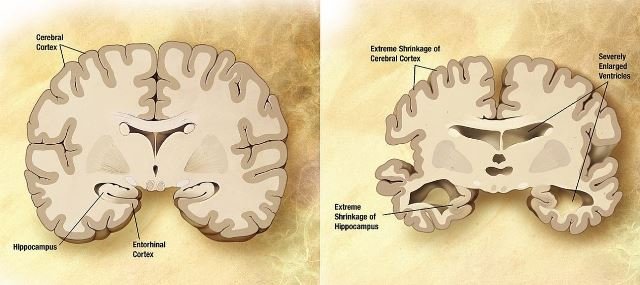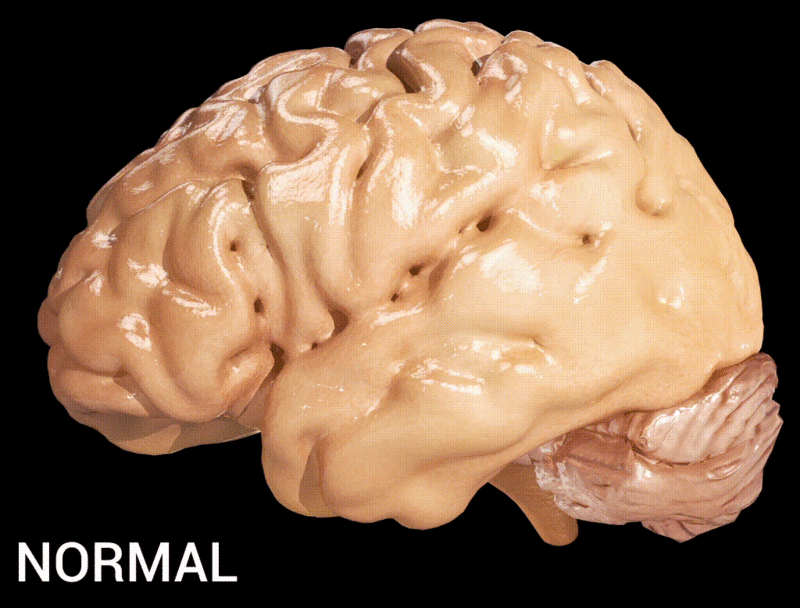New Blood Test Can Predict Early Signs of Alzheimer's Disease
I dread old-age at times. When I was younger I always had this ‘screwed’ mental picture of old-age being “that moment when I’d grow old get all wrinkly and begin to lose my faculties or probably go senile”.

Well, growth and age (ironically) has helped shaped my mentality for the better. But then, you can’t exactly rule out the fact that old-age is closely linked to depreciation in the mental and neuro abilities – and that still gives me the creeps.
Don’t I want to go old? Well, truthfully, I wish I can’t. But who would I be fooling; myself of course.
We are all biological in nature, and immortality is still “largely” fictional, when it comes to modern day science (I sincerely want to be proved wrong though – because that would mean there abounds a plausible and realistic chance of living much longer and perhaps healthier).
Anyway, old-age for what it is worth doesn’t entice me, just yet. I’m sure it doesn’t entice anyone either. But we would eventually get there, sooner or later.
One of the pronounced features of old-age has to do with neuro-degeneration. As time flies, the brain and our neurons gradually begin to age too, hence we gradually begin “to fade, upstairs”.
Alzheimer’s disease is one of those scary, chronic and ‘not-so-pleasant-to-cope-with’ degenerative neurological diseases.
To think of it, can a young person suffer from Alzheimer’s or Parkinson’s disease? The odds on that are very little. Hence, my fear of ‘ageing’.
Alzheimer: The Chronic Neurodegenerative disease
Alzheimer's disease is known to be a major agent causing dementia. Alzheimer being a neuro-disease which causes the degeneration or loss of function and death of neurons is largely an incurable disease.

Source: Normal brain (Left), Brain affected by Alzheimer's (right)
Despite years of investigation and studies, the cause of Alzheimer's disease is still poorly understood. However, research has shown that the most common hypothesis as to the causative agent of Alzheimer's disease is the deposits of plagues or Amyloid beta in the brain.
Based on a recent breakthrough in the study of Alzheimer, a new blood test developed by a group of international scientists is reportedly capable of determining the measure and level of amyloid beta concentrations from just a tiny sample of blood.
Challenges of earlier studies on Alzheimer
Researchers studying the disease have been faced with a major challenge of diagnosing Alzheimer’s during its preclinical (early) stages.

Source: Cortical atrophy linked with loss of gyri and sulci in the temporal lobe and parietal lobe, and parts of the frontal cortex and cingulate gyrus is present.
The hypothesis to this effect is that the amyloid plaques – considered being the main cause of the disease - which forms in the brain, slowly builds-up during a 10 or 20 year period before early signs of memory loss becomes noticeable. As direct as this discovery is, it certainly means that, most people diagnosed later on with the disease have had it for years, without having any inclination whatsoever. It is shocking and alarming, to say the least!
The current procedures for testing for deposits of amyloid beta in the brain is quite expensive, invasive and very onerous as well. Specific methods include costly scans of positron emission tomography (PET), or using lumbar puncture to analyze cerebrospinal fluid extraction.
Until the recent development, there had been no exact means of accurately ascertaining the presence of these amyloid plaques from blood samples.
A New Blood Test: The Recent Alzheimer Revelation
A new procedure involving blood tests, developed by Japanese and Australian scientists, was found to be 90% accurate in determining if a person had critical build-up of amyloid beta in their brain, when it was tested on hundreds of patients.
Nobel Prize winner Koichi Tanaka from the Shimadzu Corporation who is part of the new blood test discovery said;
"From a tiny blood sample, our method can measure several amyloid-related proteins, even though their concentration is extremely low. We found that the ratio of these proteins was an accurate surrogate for brain amyloid burden."
A co-lead of the research, Colin Masters, from the Florey Institute of Neuroscience & Mental Health also stated optimistically that;
The test will "be an invaluable tool in increasing the speed of screening potential patients for new drug trials. I can see in the future, five years from now, where people have a regular checkup every five years after age 55 or 60 to determine whether they are on the Alzheimer's pathway or not."
Conclusion
The new study towards early and preclinical detection of amyloid beta in the brain, which ultimately leads to Alzheimer’s disease, is still in early days. As expected, more testing would be essential before deploying the blood test procedure for the general public practice. But as it stands, its immediate use would be on participants undergoing clinical trials related to Alzheimer.
So, even though my fear for aging and age-related mental degeneration still lingers, and even though an effective singular treatment for Alzheimer’s isn’t currently obtainable, the new blood test procedure will definitely go a long way to speed up research into Alzheimer’s early prognosis by inducing quicker and more effective clinical trials.
Also, consequent of the new blood test research; a successful means of screening for the neuro disease, way before its symptoms begin to surface, will certainly aid the application of countermeasures to fight the effect of the amyloid beta concentration in the brain early enough in order to make folks (like myself) remain mentally sound even at old age and perhaps even recede mental degeneration.
Reference:
- Alzheimer's Disease
- Medicalxpress
- Neurodegeneration
- Nature
- Scientist unveil blood test
- Minimally invasive Alzheimer's blood test
Thank you for your time and for reading my post.
If you found this post interesting, then kindly UPVOTE, RESTEEM and FOLLOW @rickie, for more quality posts.
You Can Check Out My Other Posts Below:
- What is Deep Brain Stimulation (DBS) and How does it Work?
- Tree-Planting Drones – A Booming Business to Restore and Revive Earth
- Cranberry and Avocado Seed Husks Are Medically More Potent Than Previously Thought
- Apart From Humans, Pollution Affects Plants Extremely Too
- Treatment Of Ponds And Water Using Aquatic Plants
- Electronic Cigarette: History, How it Works, and Risks

A person with AD may lose their sense of smell, according to the National Institutes of Health (NIH)may be an early sign of AD.
It’s important to note that changes in your ability to smell may also be due to other causes such as:
Parkinson’s disease
brain injury
sinus infection
good write-up
Very incisive share @tholluwacoded. Thanks for reading too. I appreciate
Thanks for the informative post! Medical advancements never cease to leave me speechless, but too often people are quick to retweet a trendy headline without actually checking out the content. I think you did a really good job at summarizing the situation and providing background for someone who may not have heard of Alzheimer's before. Knowing someone with this disease, I can say that it is terrifying for them and for their family to watch them slip away, it feels so unnatural that it is hard to describe. With Alzheimer's being the 6th leading cause of death in the US, it is no wonder that people are so excited about this news. Again, thanks for posting such a quality piece, you have earned my follow for sure.
Wow! Thanks alot for reading @jwmcclain. I'm glad you found the post informative too. And thanks for airing your take on the issue too.
Great post!
However, having published literature on AD, there is actually a better "test"
10 years before we see any problems with amyloid and tau, there is glucose hypometabolism in the brain. Meaning not enough sugar or energy is getting to the brain.
You can test this and have a 10 year window before disease starts.
Alternatively, you can also rest peripheral glucose and insulin. Once those are elevated, there is cerebral glucose hypometabolism.
Wow! @supremelongevity, I never really viewed it from your angle of research. Thanks for visiting and sharing too. I appreciate
I have followed your blog a long time ago. Nice post
Thank you @htuan. I'm equally following you too.
Thanks for the information. People who find out early through this test may be able to get treatment and slow down the process. Great post. Joy
Yes, you are right @sweetjoy. That's the essence of this discovery. To help people detect the symptoms early and also begin treatments before it gets too late.
Yes. Thanks for doing your part to get the word out. :)/ Joy